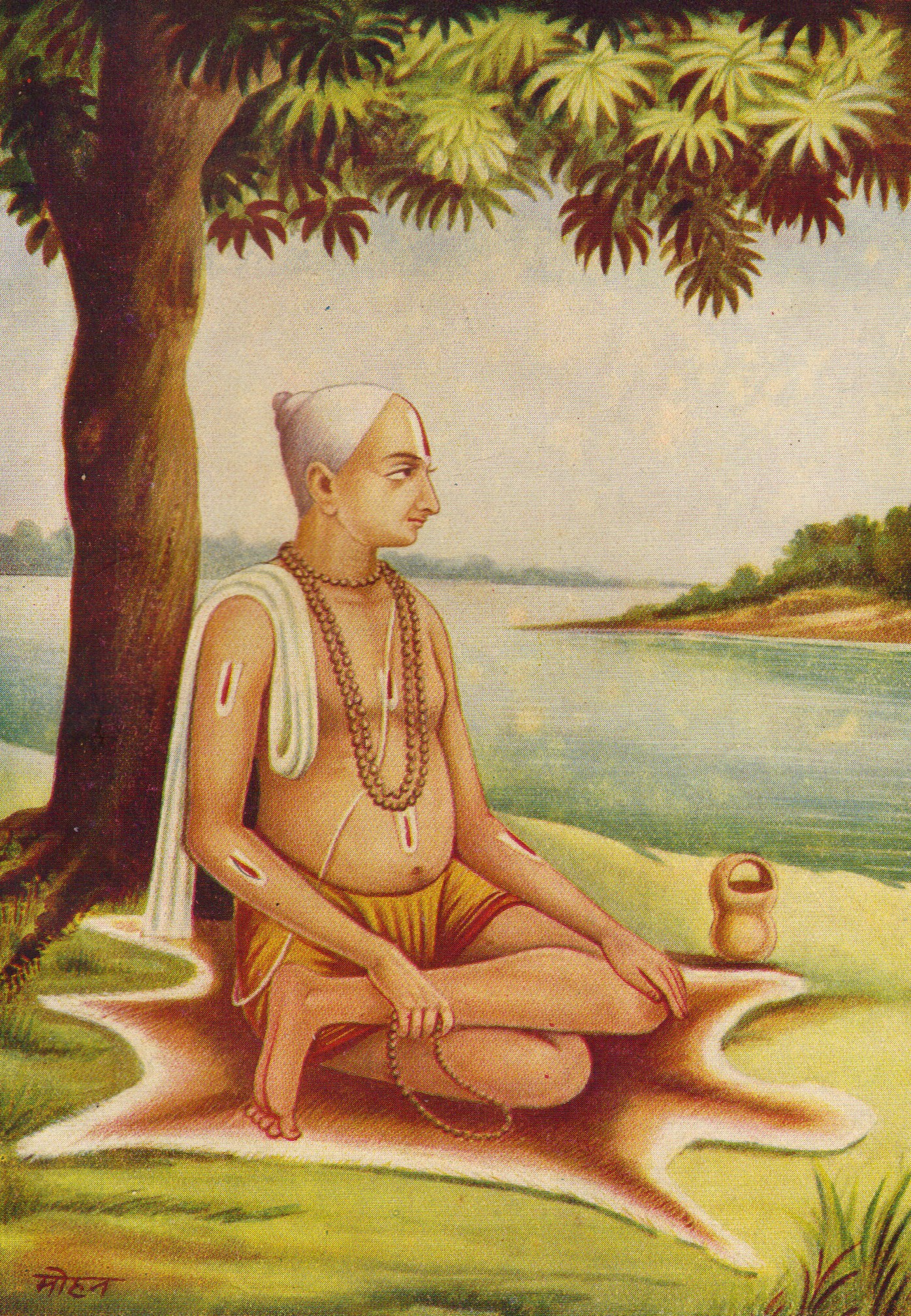Your search - Tulasīdāsa - did not match any resources.
There seems to be a problem with your search query. Please check the syntax. If you are not trying to use advanced features, putting the query inside double quotes may help.
Tulsidas
 Aatmaram Dubey (; 11 August 1532 – 30 July 1623), known as Tulsidas (), was a Vaishnava (Ramanandi) Hindu saint and poet, renowned for his devotion to the deity Rama. He wrote several popular works in Sanskrit, Awadhi, and Braj Bhasha, but is best known as the author of the ''Hanuman Chalisa'' and of the epic ''Ramcharitmanas'', a retelling of the Sanskrit ''Ramayana'', based on Rama's life, in the vernacular Awadhi language.
Aatmaram Dubey (; 11 August 1532 – 30 July 1623), known as Tulsidas (), was a Vaishnava (Ramanandi) Hindu saint and poet, renowned for his devotion to the deity Rama. He wrote several popular works in Sanskrit, Awadhi, and Braj Bhasha, but is best known as the author of the ''Hanuman Chalisa'' and of the epic ''Ramcharitmanas'', a retelling of the Sanskrit ''Ramayana'', based on Rama's life, in the vernacular Awadhi language.Tulsidas spent most of his life in the cities of Banaras (modern Varanasi) and Ayodhya. The Tulsi Ghat on the Ganges in Varanasi is named after him. He founded the Sankat Mochan Hanuman Temple in Varanasi, believed to stand at the place where he had the sight of the deity. Tulsidas started the Ramlila plays, a folk-theatre adaptation of the ''Ramayana''.
He has been acclaimed as one of the greatest poets in Hindi, Indian, and world literature. The impact of Tulsidas and his works on the art, culture and society in India is widespread and is seen today in the vernacular language, Ramlila plays, Hindustani classical music, popular music, and television series. Provided by Wikipedia